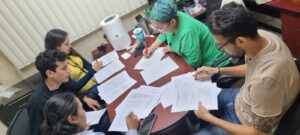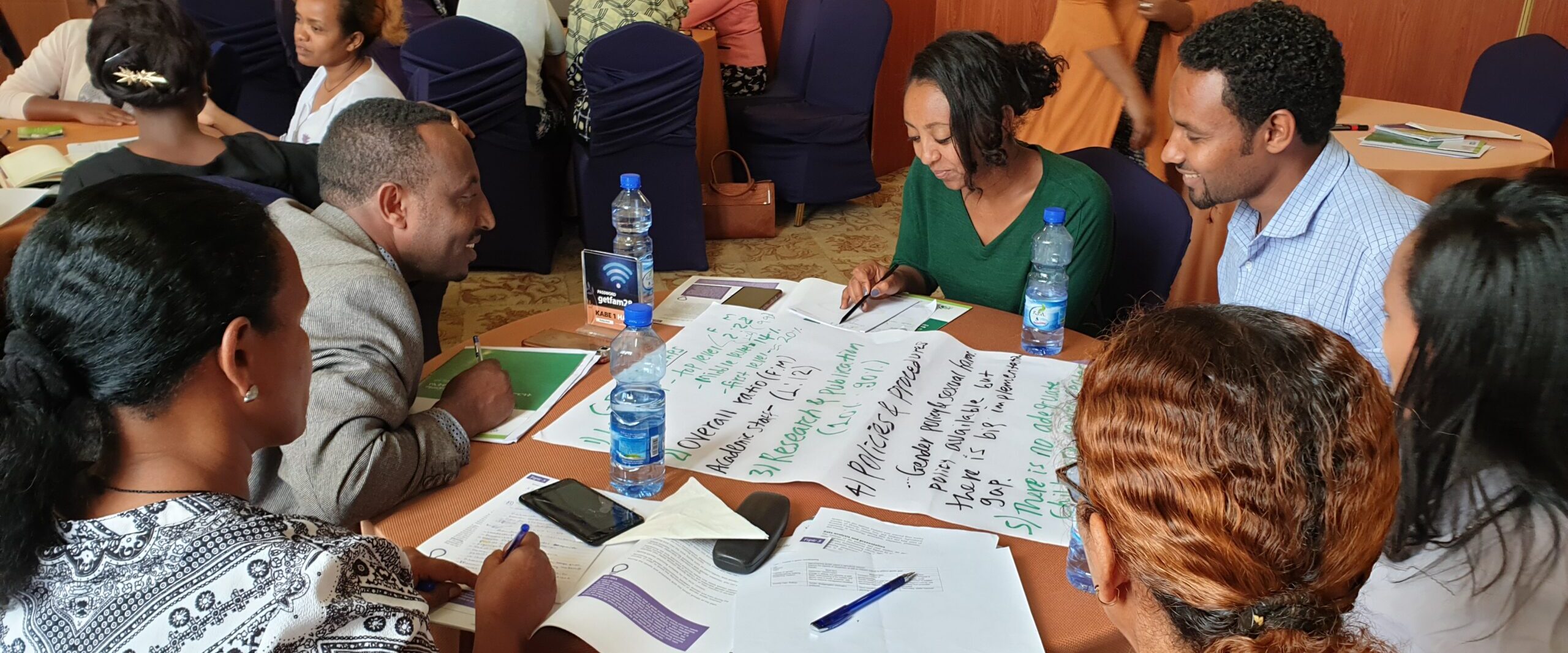
Three ways INASP can support you to drive gender equity and inclusion in higher education and research
If we want to forge a better, more inclusive world for women, we need to address bias, stereotypes, and discrimination in all areas and sectors, including higher education and research. While there has been progress to make this sector more equitable and inclusive, there is still significant ground to cover. Existing, and often persistent, gender gaps include:
- Only 33.3% of researchers world-wide are women
- Women researchers on average publish less and are often cited less than men
- Women are underrepresented in STEM subjects
- 28% of people believe that university education is more important for men than women
- Women are underrepresented in positions of power and leadership in higher education
This is something we at INASP actively address. If you are working to close gender gaps in higher education and research here are three ways that INASP can help you to drive equity and #inspireinclusion:
1. Support women early career researchers to build their career through AuthorAID
Our global AuthorAID community provides training, mentoring, and networking opportunities for early career researchers in and from the Global South. Since 2015, more than 20,000 women researchers have participated in our freely available MOOCs (Massive Open Online Courses) on research writing, and proposal and grant writing, with a 44% completion rate. While women tend to have lower confidence in their skills when they join our courses, they tend to complete them with a higher increase in confidence compared to men. Our next open six-week long online course ‘Getting started with writing and publishing your research’ starts on April 16th. Click here to learn more and sign up.
“Before I participated in the course I always [saw] writing papers as herculean task, but all the fear is gone. It has also opened my understanding to know how to target the right journal outfit to send my papers and I know this will reduce the rate of rejection I received from journal editors.” (Online course participant, woman, Nigeria)
We also partner with research capacity strengthening organisations and networks to run bespoke courses with specialised support for smaller cohorts of researchers. In 2023, for example, we ran a combined research and proposal writing course for 100 researchers from the National Institute of Health and Research (NIHR)’s Global Health Academy. And in previous years we have partnered with the Organization for Women in Science for the Developing World (OWSD) to provide additional support for their members during our MOOCs.
Individual researchers further on in their career who want to support up-and-coming women researchers can share their knowledge and expertise as an AuthorAID mentor. To read more about the impact women mentors can have on young researchers, read our interview with AuthorAID steward Alejandra Arreola from Mexico here.
2. Create opportunities for women learners to thrive with our gender responsive pedagogy guidance
Our framework and accompanying guidance for gender responsive pedagogy in online learning supports designers and facilitators to ensure that the needs of both women and men learners are integrated throughout the design and facilitation of their online events and courses. Gender responsive teaching and learning can improve learning outcomes for both women and men while ensuring that women in particular are actively engaged in the learning process and growing in confidence.
“I now have a new life experience in academics. As a female student, I did not play any leadership role in my class. I was taught to respect and obey what my teacher taught me whether correct or wrong. I now have learned how to say no, discuss, disagree and to compromise on issues that affect society in general. I think I have gained some form of personal freedom and the willingness to lead.” (Student, woman, University of Dodoma)
Our original – classroom based – framework and approach for supporting gender responsive pedagogy in higher education was developed with partners in Kenya, Tanzania and Uganda.
“I consider gender issues from the first levels of lesson preparation, class implementations, assessment, class examples, classroom sitting plan, and even representativeness.” (Lecturer, man, Mzumbe University)
Our Facilitating Events and Courses in an Online World course is freely available in self-study mode for anyone who wants to develop their knowledge and abilities in facilitating online events and courses.
3. Champion institutional inclusion with our gender mainstreaming toolkit
Our gender mainstreaming in higher education toolkit supports higher education and research institutions to tackle institutional gender inequalities. The toolkit provides the materials
and resources to run an introductory workshop resulting in the development of an action plan to address identified gender gaps.
The toolkit was co-developed with the University of Dodoma in Tanzania following a gender workshop supported by INASP. We, and our partners, have used the toolkit as a standalone resource to support institutional gender mainstreaming. We have also used it as part of our work with partners in Ethiopia and Uganda to establish national gender alliances that bring institutional gender champions together to network, share experiences and support each other in their efforts to make research and knowledge systems more equitable.
“There are so many benefits to a forum like this! The main one is that we share our experiences, and we support each other in various ways. We share materials, we share information, and we support each other on how to better ourselves.” (Haregewoin Fantahun, Addis Ababa University, Ethiopian Gender Learning Forum facilitator)
We hope you feel inspired to drive gender equity and inclusion in higher education and research and that you found our insights and tools useful. If you would like to explore how we can work together, email me at mskovgaard@inasp.info

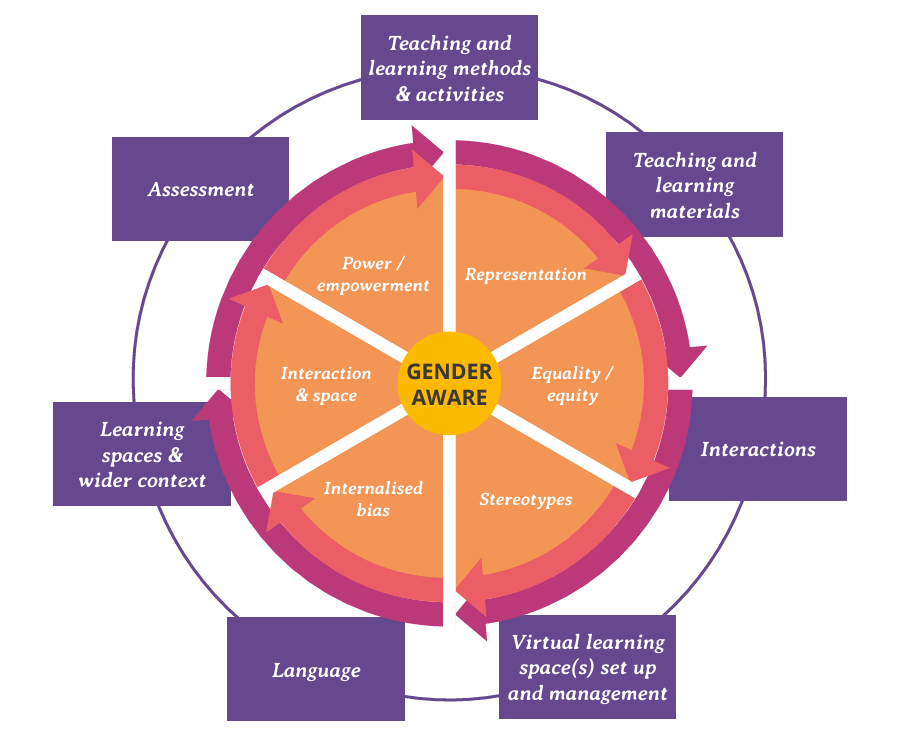
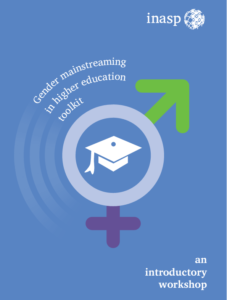
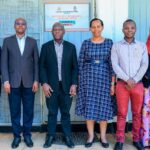 Previous Post
Previous Post
